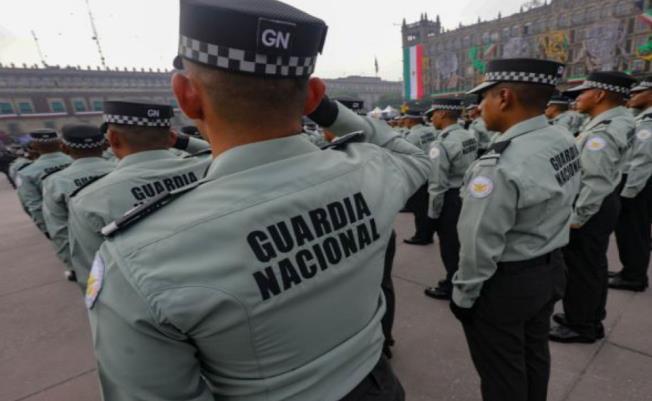






June 20-27, 2025








June 20-27, 2025
US Treasury’s sanctioned CI Banco, Intercam Banco, and Vector Casa de Bolsa for allegedly laundering money for Mexican cartels involved in fentanyl trafficking The sanctions, under the Fentanyl Sanctions Act and FEND Off Fentanyl Act, block US transactions, accusing the institutions of enabling millions in illicit funds and chemical purchases from China for cartels like CJNG and Sinaloa. Mexico’s Secretary of Finance and President Sheinbaum rejected the claims, citing no evidence. Furthermore, the National Banking and Securities Commission (CNBV) announced that the firm Álvarez & Marsal took temporary control of the administrative functions of the three financial institutions, according to Latinus
The move tensions US Mexico relations, risking financial disruptions and complicating USMCA talks and the 2024 security agreement. For instance, Secretary of State Marco Rubio announced visa restrictions for family members of the banks. Mexico views the sanctions as unilateral, potentially escalating disputes over trafficking and security cooperation.
Source: EL ECONOMISTA


MEXICOUSSECURITYAGREEMENTIS UNDERWAY
President Sheinbaum affirmed coordination with the US and revealed that a new security agreement is close to being finalized. Despite recent criticism from US officials labeling Mexico an “adversary,” Sheinbaum emphasized bilateral cooperation without subordination If the agreement succeeds, Mexico US security collaboration could be significantly strengthened, offering a more united front against fentanyl production and distribution amid growing global tensions and ongoing debates over accountability. Meanwhile, China’s decision to tighten controls on two fentanyl precursors signals willingness to cooperate, though officials continue to frame the opioid crisis as a US responsibility.
Source: NYT
On June 24th, during the morning conference, Secretary of Economy Marcelo Ebrard commented on the trade negotiations delay due to the tensions between Iran and Israel. Although the conflict has been temporarily been put on hold, this issue has swept Trump's attention as a more urgent matter than trade negotiations with Mexico. Nevertheless, Ebrard stated that the USMCA negotiations are on a strict deadline and there will be no disruption on the timeline previously established.
Source: ANIMAL POLÍTICO


During an extraordinary session beginning June 23, 2025, the Senate advanced a legislative agenda aligned with President Sheinbaum’s administration Priorities include reforms promoting social justice, environmental protection, and modernizing railway systems. The session also addressed laws to combat money laundering and terrorism financing, and the new telecommunications and public security laws. The sessions will continue to develop during the weekend. Nevertheless, some critics have expressed concern due to the lack of counterweight in the legislative agenda, which continues to undermine Mexico's democratic legitimacy
Source: SENADORES DE MORENA
Juan Paura García, recently appointed as Nuevo León’s Secretary of Economy, could signal a shift in the relationship between the public and private sectors, potentially fostering more structured collaboration and renewed investor confidence in the state
Source: MILENIO


On June 25, 2025, the Mexican Congress approved a reform allowing members of the National Guard to run for elected office and formalizing its control under the Ministry of National Defense. Critics, including opposition parties and Amnesty International, warn this deepens the militarization of public security The reform defines the Guard as a permanent, military-trained police force with intelligencegathering powers and access to crime evidence before prosecutors
President Claudia Sheinbaum defends the initiative as key to coordinated crime prevention, but human rights groups caution it risks fostering impunity and undermining democratic institutions. Although it still needs to go through the legislative process, this reform could pose a significant threat to democracy, especially due to the National Guard gaining more power and influence with each reform
Source: ARISTEGUI NOTICIAS
Banxico cut its benchmark interest rate by 50 basis points to 8%, amid global trade tensions, weak economic activity, and rising inflation. Despite inflation exceeding the 3% target, this marks the fourth consecutive rate cut. Experts criticized the move, warning it undermines Banxico’s credibility and risks fueling inflation further; rising interest rates while expecting inflationary effects is contradictory
Source: REFORMA
Bill For Discussion With Decree Project For The Prevention And Identification Of Operations With Illicit Resources
Presented by: Joint Committees on Justice and Legislative Studies
Objective: Strengthens antimoney laundering and counterterrorism financing efforts by clarifying definitions, updating thresholds using the UMA, expanding oversight powers, mandating automated monitoring, training programs, and introducing risk-based approaches.
Status: Approved, sent to the Chamber of Deputies
BILL FOR DISCUSSION WITH DECREE PROJECT TO ISSUE THE NATIONAL LAW TO ELIMINATE BUREAUCRATIC PROCEDURES
Presented by: Joint Committees on Governance; Economy; Legislative Studies
Objective: This law seeks to simplify and digitize procedures and services across all levels of government, strengthen public technological capacity, eliminate bureaucratic costs, and promote transparency and efficiency
Status: Approved, referred to the Federal Executive


Bill For Discussion With Decree Project To Issue The National Guard Law
Presented by: Justice Committee
Objective: Establishes the National Guard as a permanent, professional public security force composed of military personnel with police training and trusted civilian staff for technical and administrative roles. It outlines recruitment, command structure, duties, disciplinary actions, and the National Defense Secretariat’s responsibilities for its development and operation.
Status: Approved, passed to the Senate.
Bill With Decree Project To Amend Article 123 of The Constitution
Presented by: Deputy Manuel de Jesús Baldenebro Arredondo
Objective: Reduces the maximum workweek to 40 hours over five days, limits night shifts to six hours, sets a fivehour maximum for workers under 16, and grants at least two rest days per five days worked. The reduction will be phased in gradually over five years.
Status: Published in the Parliamentary Gazette
NOTE:
These initiatives were presented during the Extraordinary Period by the Permanent Commissions. Meaning that they would have to be referred to Congress on the next Legislative Period if they were to be approved.
